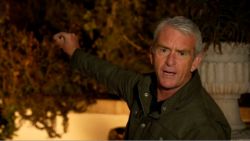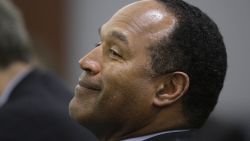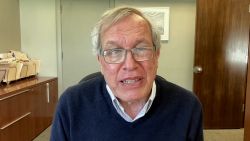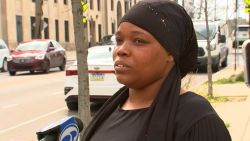Editor’s Note: LZ Granderson is a journalist and political analyst. He was a fellow at the Institute of Politics at the University of Chicago and the Hechinger Institute at Columbia University. He is the sports and culture columnist for the Los Angeles Times and co-host of ESPN LA 710’s “Mornings With Keyshawn, LZ and Travis.” Follow him on Twitter and Instagram @lzgranderson. The opinions expressed in this commentary are solely those of the author. View more opinion articles on CNN.
Many are angry and wondering why government officials have been unable to solve the homelessness crisis in Los Angeles.
LA spent nearly $620 million in tax dollars last year to address the issue, and yet the number of homeless people increased by 16%, reaching nearly 60,000 people.
As a Los Angeles resident, I am among those who wonder what the mayor’s office is doing. When I lived downtown it was virtually impossible to walk a full block in any direction without seeing a homeless person. In Silver Lake where I live now, there are tent cities. On my drive to work I see people living underneath the highway overpasses. It’s no longer Skid Row here. The skid is everywhere.

But you know what else is everywhere? Churches – and therein lies the rub.
Earlier this spring, results from the 2018 General Social Survey revealed something that many found rather shocking. For the first time in the survey’s nearly 50-year history, the No. 1 religion Americans identified as being was none, edging Catholic and Evangelical.
Now, I’m sure some religious conservatives would read this and ask, “well, who did the survey?” The answer is Ryan Burge, a political scientist at Eastern Illinois University and a Baptist pastor. Next would likely be the finger pointing as to why Americans are losing religion – the rise of secularism, acceptance of abortion, the gays, and so on.
To that I would simply point my finger at the other national story that has unfolded within the week.
It was about an interview conducted by journalist Lisa Guerrero with famed Christian televangelist – and prosperity gospel adherent – Kenneth Copeland. When asked about what he paid for his private plane, Copeland replied “that’s none of your business.” He also said the private plane he purchased from producer Tyler Perry was “so cheap for me I couldn’t help but buy it.”
I’m not against buying the finer things in life, but I’m uncomfortable with Copeland positioning himself as some sort of helpless victim as he acquires those things. Especially since we all know he’s doing it tax free.
There’s not a city I’ve lived in that didn’t have people you learn to unsee. Sometimes I give directly to someone who asks. Sometimes I buy a meal. But most times I force myself not to care enough to stop because to stop is to admit there’s something I can do.
Instead, I ask myself, “where are my tax dollars going and what are our politicians doing with it?” I pay taxes so that the people I voted for can handle it. Then I’m reminded that homelessness, like most socioeconomic issues, is complicated. There isn’t a single answer because there isn’t a single reason why someone is living on the streets.
They’re not all drug addicts. They’re not all lazy. They all didn’t choose to be without a home. Brokenness comes in many forms – like mental illness, a disenfranchised veteran, a transgender woman fleeing a violent environment.
These are not random hypotheses, these are the stories I have been told when I do stop and ask them about themselves in an effort to try to help. For example, in Chicago, there was a homeless man I would occasionally buy food for because medical bills forced him out of his home. And yeah, some are drug addicts… but that doesn’t mean they are not worthy of compassion. Worthy of being treated like a human being.
All of which brings me back to the decline of religious identity. While it is fair to wonder what our elected officials are doing with our tax dollars to solve the issue, I do wonder what our religious figures are doing with their tax-exempt status regarding the issue. There are several mega churches within Los Angeles County alone with weekly attendance well over 5,000, which begs the question: How is it possible that 60,000 are living in the streets, while so many self-identified Christian Evangelicals are worshipping in buildings large enough to house that many parishioners?
When you watch the video of a man like Copeland justifying his lavish lifestyle juxtaposed against the story of rampant homelessness, it becomes a bit easier to understand why so many Americans have decided not to be a part of organized religion.
Perhaps instead of looking outward for reasons why people’s hearts have moved away from the church, maybe the church should spend time looking inward. This week, the issue of homelessness is about what’s going on in Los Angeles, but isn’t it a problem all around the country?
There also isn’t a major urban hub without a church resting on prime real estate, collecting thousands in non-taxed donations and tithes each week. The government needs to be a better steward of our taxes. I can stop to help more as well. But I would argue that the self-proclaimed body of Christ has leaders who could use a serious tune-up as well.


















